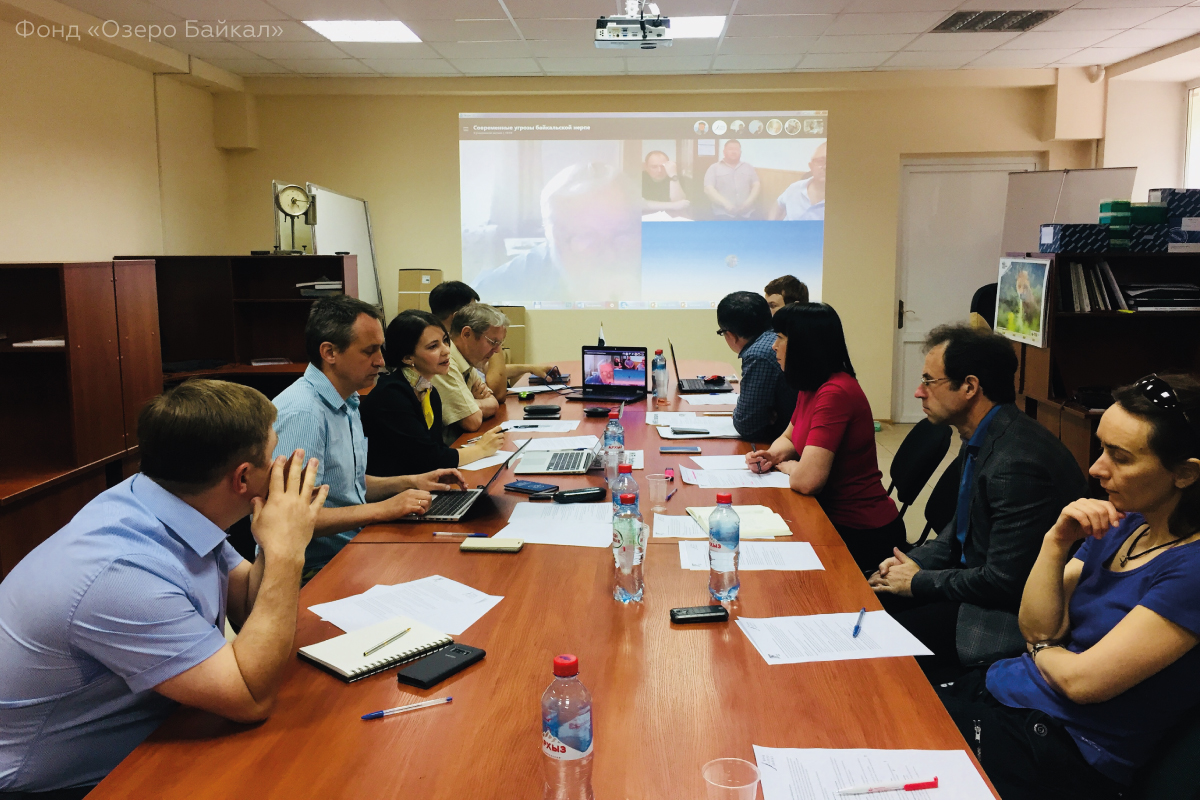June 18, 2018 the Lake Baikal Foundation for Environmental Applications and Research in cooperation with the A.N. Severtsov Institute of Ecology and Evolution held a round table «Current threats to the Baikal seal». The round table was devoted to the causes and consequenc of existing threats that affect the state of a unique endemic and the necessary measures to protect it.
The round table was attended by: Peterfeld V.A., PhD in Biology, director of the Baikal branch State Budgetary Institution «Gosrybtsentr»; Baranov E.A., PhD in Biology, CEO at Irkutsk Nerpinary «Baikal seal aquarium», member of the Council for Marine Mammals (CMM); Ryadinskaja N.I., head of the Department of Anatomy, Physiology and Microbiology of the А.А. Ezhevsky ISU; Chernook V.I., PhD in Geography, head of «Giprorrybflot» department; Glazov D.M., leading engineer at the A.N. Severtsov Institute of Ecology and Evolution, deputy chairman of the CMM; Salman A.L., CEO at «ES-PAS», member of CMM; Pastukhov M.V., PhD in Biology, associate of the laboratory «Problems of geochemical mapping and monitoring» at the Institute of Geochemistry of the SB RAS; Petrov E.A., Doctor of Biological Sciences; Sutula V.I., director of the State Budgetary Institution «Baikal State Reserve»; Ovdin M.E., director of the State Budgetary Institution «Zapovednoye Podlemorye»; Timofeyev M.A., doctor of Biological Sciences, director of the ISU Institute of Biology; Kolobov M.Y., PhD in Biology senior researcher at M.V. Lomonosov MSU Department of Hydrobiology, Biological Faculty. The moderators of the discussion were Rozhnov V.V., director of the A.N. Severtsov Institute of Ecology and Evolution and Tsvetkova A.V., CEO at the Lake Baikal Foundation.
The main topics of the discussion were: data on the current state of the Baikal seal population, existing methods of counting seals in different water bodies, changing the Baikal ecosystem, climatic and anthropogenic factors affecting the Baikal endemic population.
During the discussion, the main threats to the seal on Baikal were noted, among them poaching, attempts by certain power structures to regulate the number of endemic species without a research base, derangement of the animal’s food ration due to changes in the lake’s ecosystem in view of the anthropogenic load, climatic changes affecting habitat.
The participants of the round table proposed several modern methods of counting that would allow obtaining data on the population size by humane and non-violent ways, for example, tagging, aerial survey, hydroacoustic method. A number of scientists noted the relevance of traditional area accounting throughout the territory with the use of special equipment. Experts also stressed the need for complex analyzes, including histological analyzes, stress tests, and evaluation of the reproductive capacity of females.
Following the discussion, the participants came to agreement to develop a comprehensive program under the auspices of the Lake Baikal Foundation to count the Baikal seal and study its habitat. The scientific program will be formed within a month. Specialists, scientists and experts will be involved in the development. The program is planned to be presented within the framework of the round table on the problems of closed reservoirs seals preservation, which will be held in October 2018 in Arkhangelsk.


